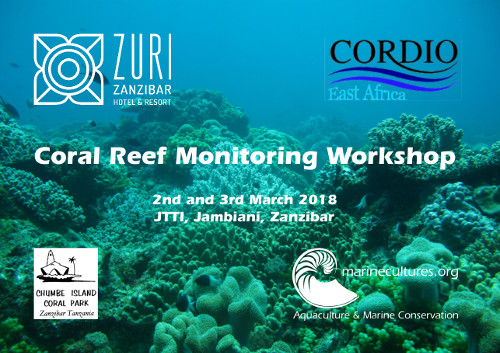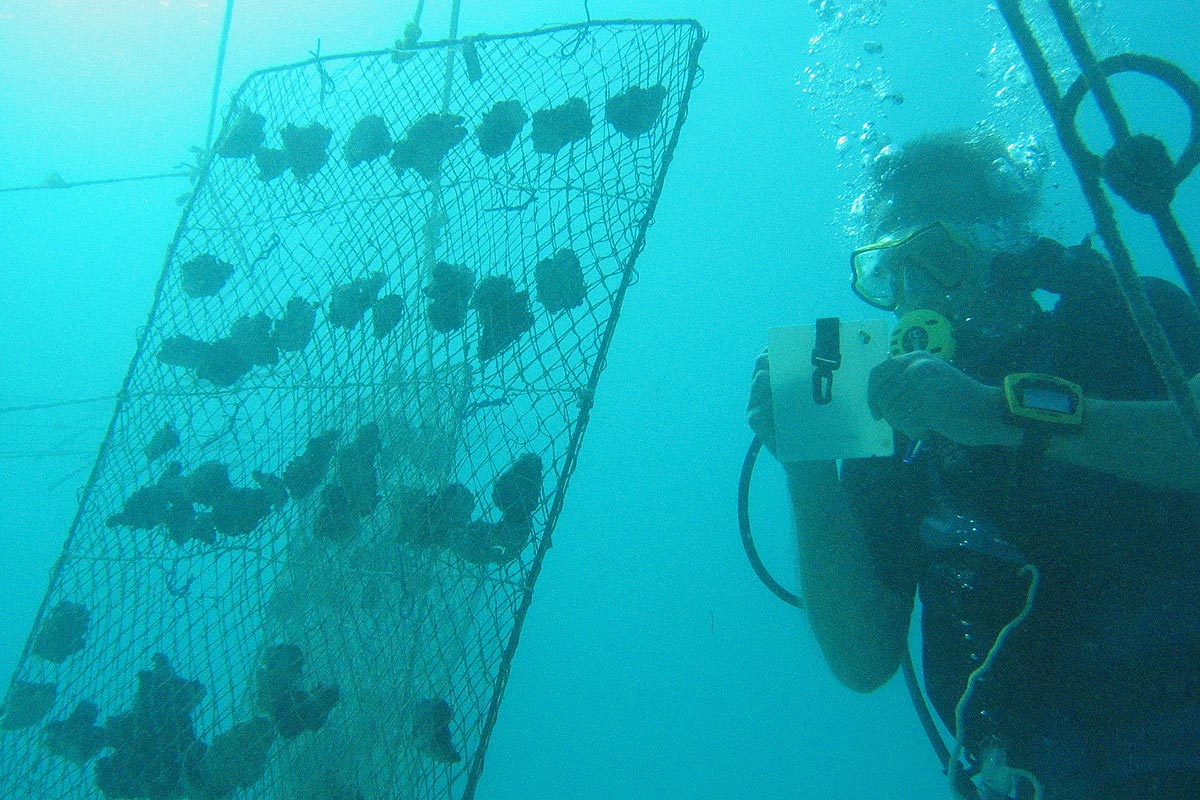New Zanzibar Coral Reef Monitoring initiative launched
05.03.2018

For the first time in Zanzibar’s history representatives from various scuba diving operators, NGO’s and scientists have gathered for a Coral Reef Monitoring workshop in Jambiani. The 23 participants received hands-on training in basic coral reef monitoring methods by Dr. David Obura from Coastal Oceans Research and Development (CORDIO) East Africa, who also moderated a discussion on how to establish a coordinated coral reef monitoring initiative. The group plans to expand monitoring initiatives currently limited to reefs on Zanzibar’s West coast to reefs surrounding Zanzibar in all directions. Being the eyes and ears underwater, the group aims to provide important information for decision making in fisheries, tourism and reforestation.
The workshop was generously sponsored by Zuri Hotels and Buccaneer Diving and jointly organised by CORDIO East Africa, the Chumbe Island Coral Park, coralreefcare.com and marinecultures.org. A big thank you goes to the Jambiani Tourism Training Institute for their excellent hosting of the workshop.

What will be monitored?
Coral bleaching
Each year, seasonal sea temperatures in the West Indian Ocean (WIO) rise during the months of December and January which is when group members will start keeping an extra eye out for indicators of coral bleaching. February and March are the most likely months for bleaching events to happen as water temperatures hit the maximum. If bleaching events are evident, selected reefs will be monitored on a two-weekly basis until the number of dead corals has stabilized (peak bleaching).
The benthic habitat
On an annual (or more frequent) basis divers will record benthic (ground covering) inhabitants of selected coral reef stretches (e.g. hard and soft corals, sponges, algae and bacteria covered rocks). Derived from the benthos survey is the hard coral cover which is one of the most relevant indicators for the health of coral reefs as hard corals are the main reef builders. The presence of the various competitors for reef space may give important information on what affects hard coral cover.
Fish abundance
A healthy reef harbours a lot fish! The abundance of particular fish species can be an extra indicator for the health status of a coral reef. An over representation of parrotfish, for example, may indicate a lot of algal growth due to coral bleaching while butterflyfish are indicators for healthy coral communities as they feed on coral polyps. Divers will monitor fish abundance concomitantly with the benthic habitat.
Qualitative and quantitative data will be submitted to CORDIO East Africa who will analyse the data and generate a Zanzibar specific report. The collected data will also be used for the CORDIO East Africa reporting for the WIO area.




